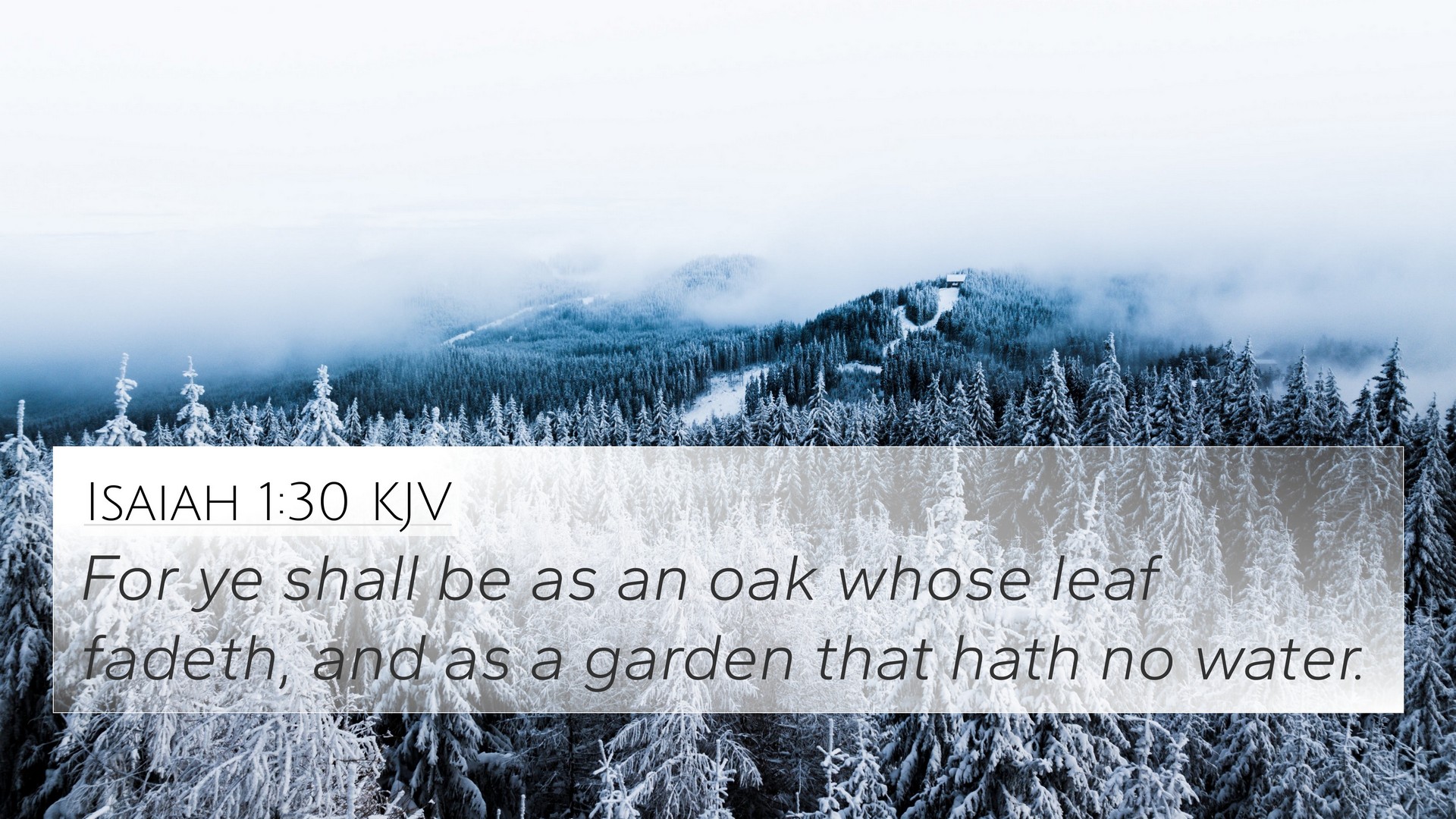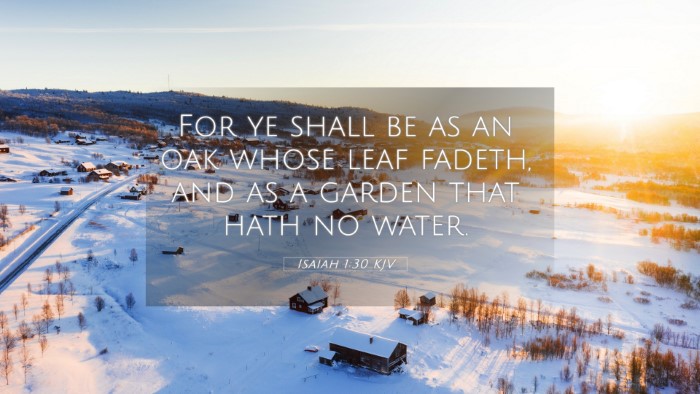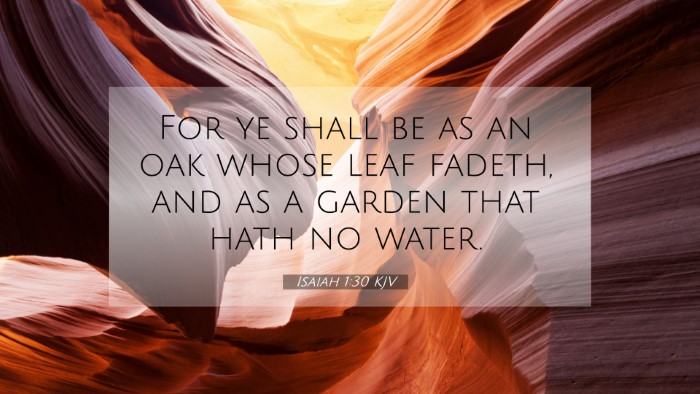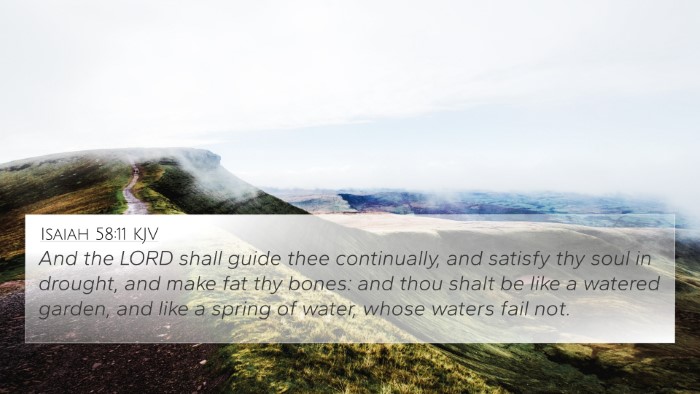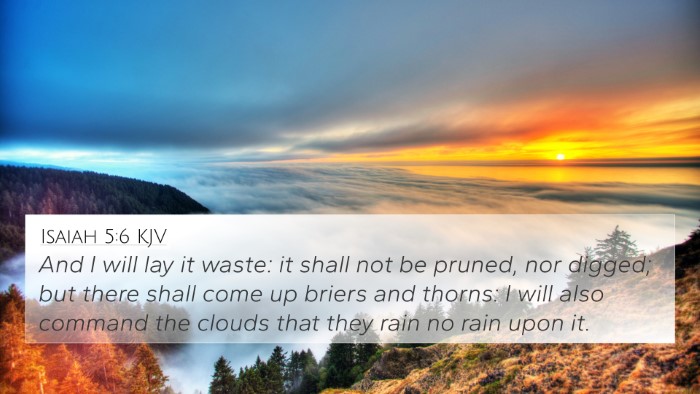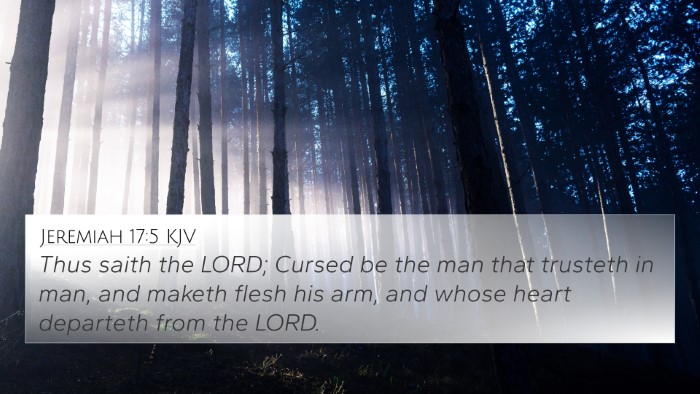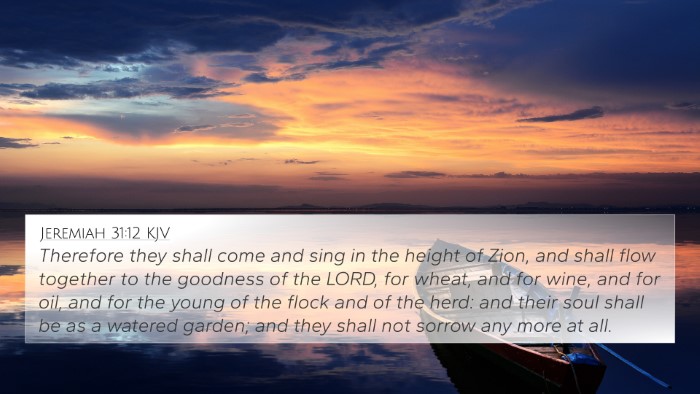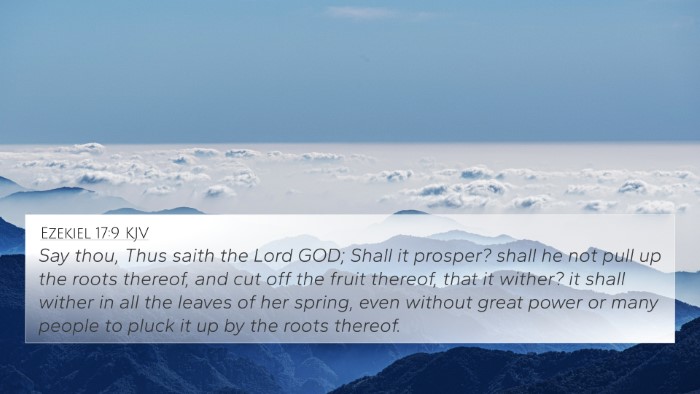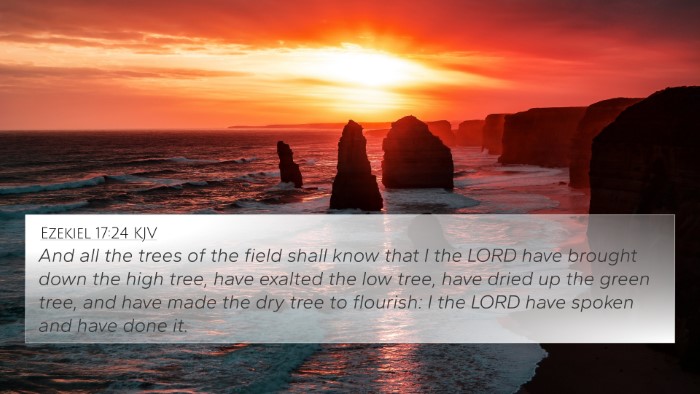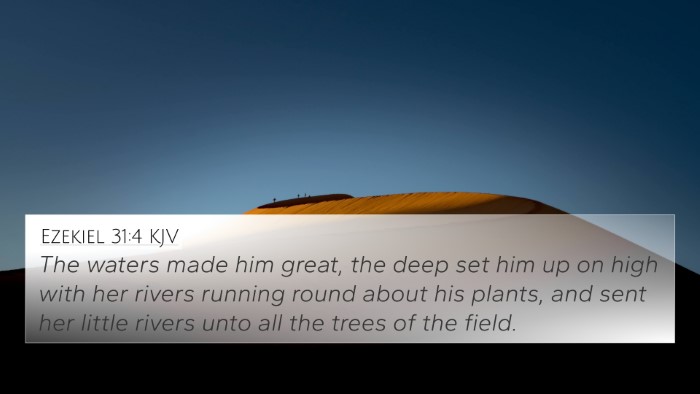Meaning and Interpretation of Isaiah 1:30
Isaiah 1:30 states: "For ye shall be as an oak whose leaf fadeth, and as a garden that hath no water." This verse conveys a powerful message regarding spiritual desolation and the consequences of turning away from God.
Summary of Commentary Insights
This verse is a vivid metaphor that draws upon the imagery of nature to illustrate the spiritual condition of the people of Israel. Below, we summarize the insights from various public domain commentaries.
Matthew Henry’s Commentary
Henry emphasizes that the "oak" represents strength, yet without nourishment from water, it withers. Similarly, the people of God, without the life-giving presence and guidance of the Lord, suffer decay and loss. This condition reflects a departure from reliance on God, leading to a state of spiritual drought.
Albert Barnes’ Commentary
Barnes notes that this imagery depicts a state of utter despair and impotence. The oak, although a strong tree, symbolizes those who once held firm but are now frail due to the absence of divine support. The "garden that hath no water" further highlights the barrenness resulting from spiritual neglect and rebellion against God.
Adam Clarke’s Commentary
Clarke provides an analysis of this verse by discussing the broader context of Isaiah’s prophecies. He underscores that this verse serves as a warning about the consequences of forsaking God’s ways. The imagery serves to remind the people of Israel of their need for spiritual sustenance and the dangers posed by their abandonment of God’s covenant.
Spiritual Implications
Isaiah 1:30 warns about the inevitable collapse of those who turn away from their source of life. The cross-reference to Jeremiah 17:8 enhances this understanding as it discusses a tree planted by waters, highlighting the contrast between spiritual vitality and desolation.
Related Biblical Cross-References
- Jeremiah 17:8: "For he shall be as a tree planted by the waters..." - Emphasizes the blessing and sustenance found in dependence on God.
- Psalms 1:3: "And he shall be like a tree planted by the rivers of water..." - Mirrors the theme of stability and growth through divine nourishment.
- Matthew 13:6: "But when the sun was up, they were scorched; and because they had no root, they withered away." - Highlights the importance of rooting oneself in God for spiritual sustenance.
- Revelation 7:17: "For the Lamb which is in the midst of the throne shall feed them..." - Illustrates the ultimate provision and nourishment found in Christ.
- John 15:5: "I am the vine, ye are the branches..." - Reinforces the connection between abiding in Christ and experiencing life.
- Hosea 14:4: "I will heal their backsliding; I will love them freely..." - Speaks to God’s readiness to restore those who return to Him.
- Isaiah 58:11: "And the Lord shall guide thee continually, and satisfy thy soul in drought..." - Offers hope that God’s guidance brings life even in times of spiritual dryness.
Thematic Connections
This verse serves as a reminder of the broader Biblical teaching on the themes of dependence on God, the consequences of spiritual neglect, and the vital relationship between individuals and their Creator. It teaches that turning towards God leads to nourishment, while departure leads to spiritual barrenness.
How to Use Bible Cross-References
Utilizing tools for Bible cross-referencing can significantly enhance your understanding of verses like Isaiah 1:30. Through a Bible concordance or a cross-reference Bible study guide, one can explore connections and deepen their scriptural knowledge.
Moreover, employing methods such as comparative Bible verse analysis and thematic Bible verse connections will enrich your study, allowing you to discover how different passages interrelate and support each other, providing a fuller picture of Biblical teachings.
Conclusion
In summary, Isaiah 1:30 serves as not only a cautionary note about the danger of spiritual neglect but also as a profound illustration of our need for divine sustenance. As we explore this verse in connection with other scriptures, we see the importance of remaining steadfast in our relationship with God and the life that comes from Him.
In studying these connections, readers are encouraged to engage actively with the scriptures, seeking to understand how diverse passages resonate with one another and culminate in rich theological insights.
